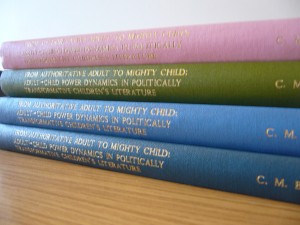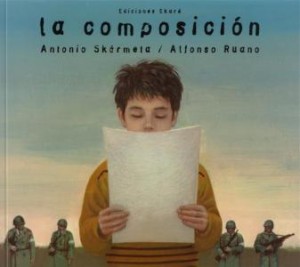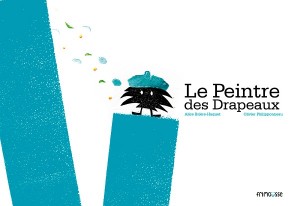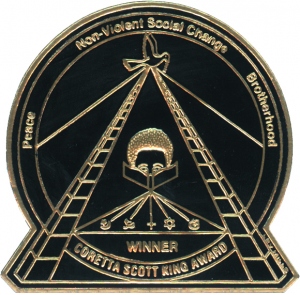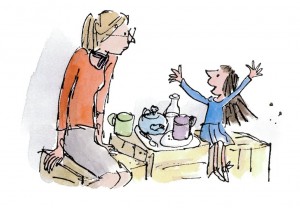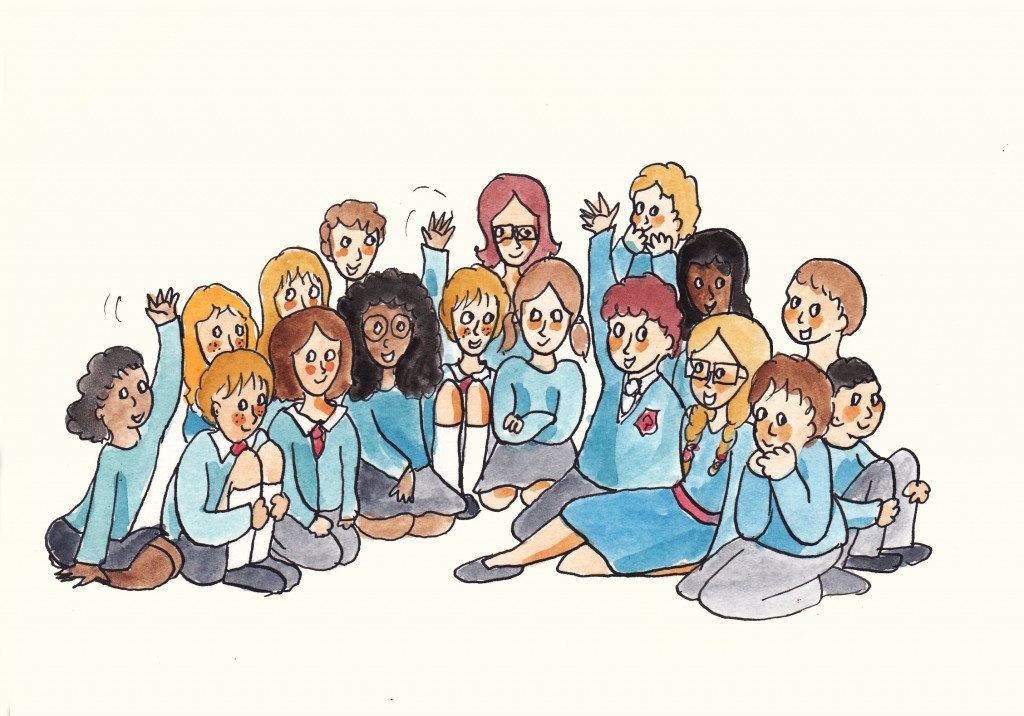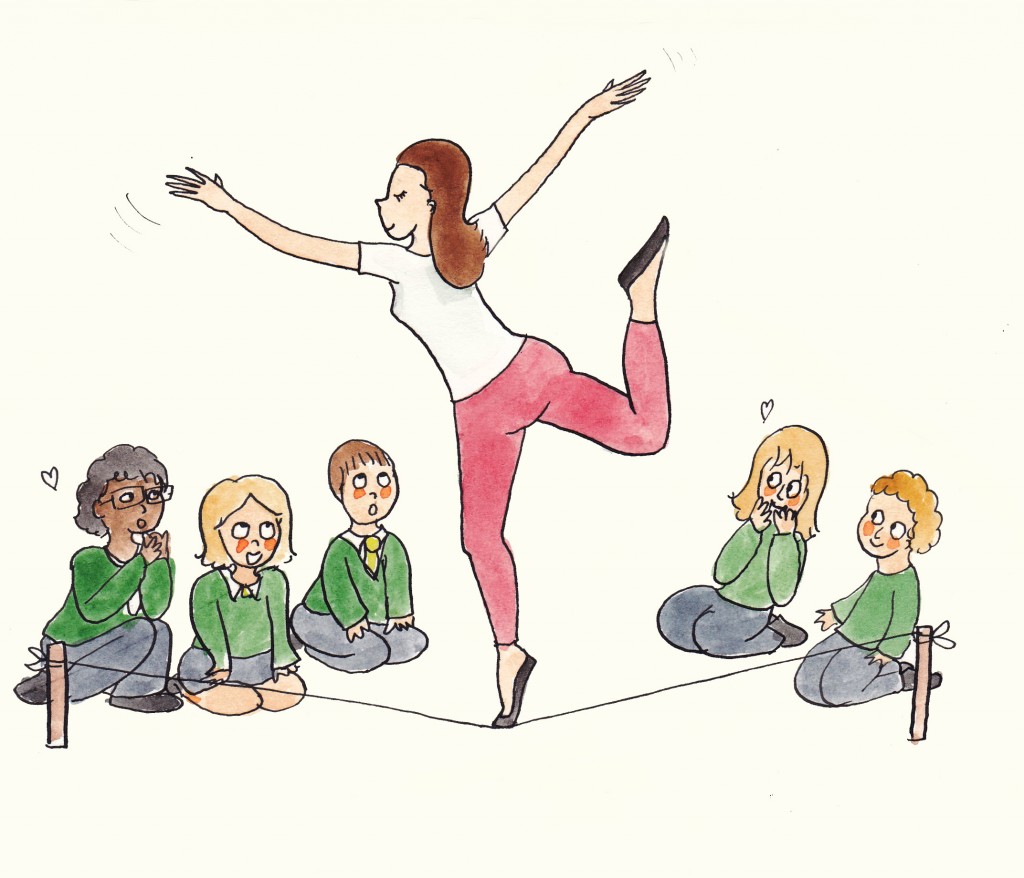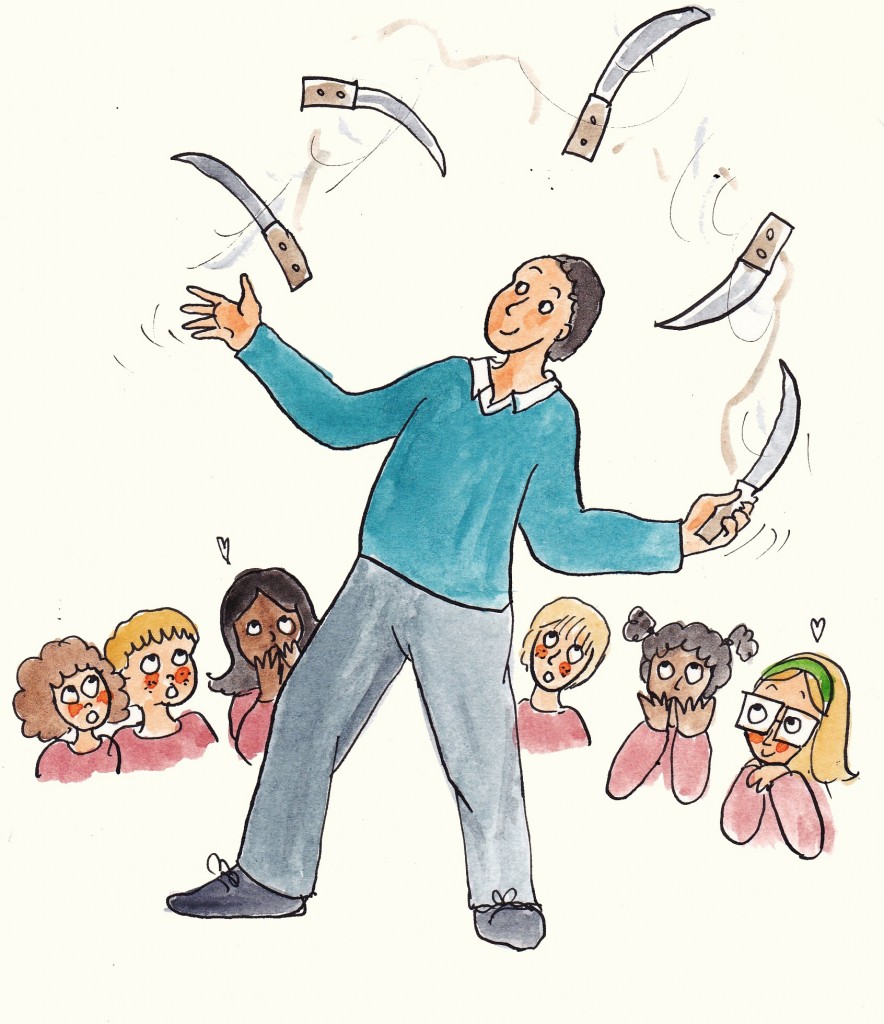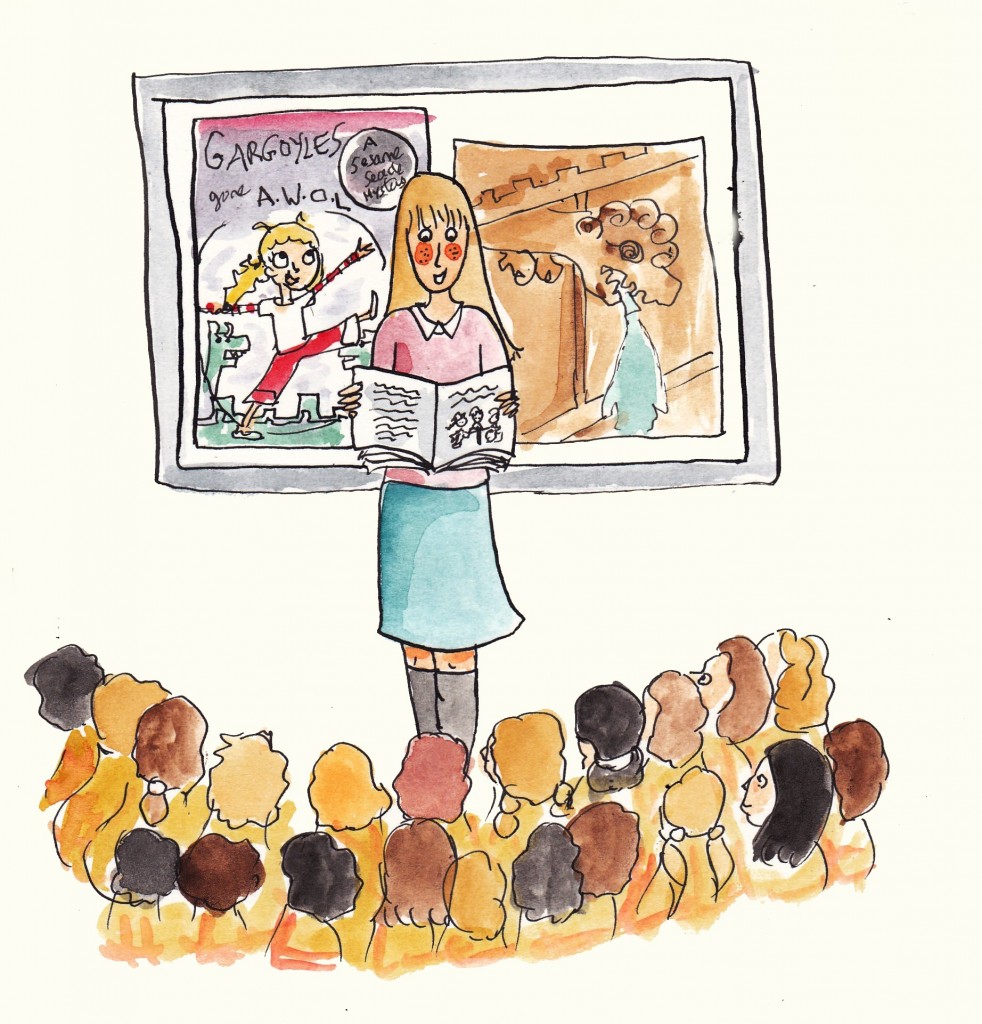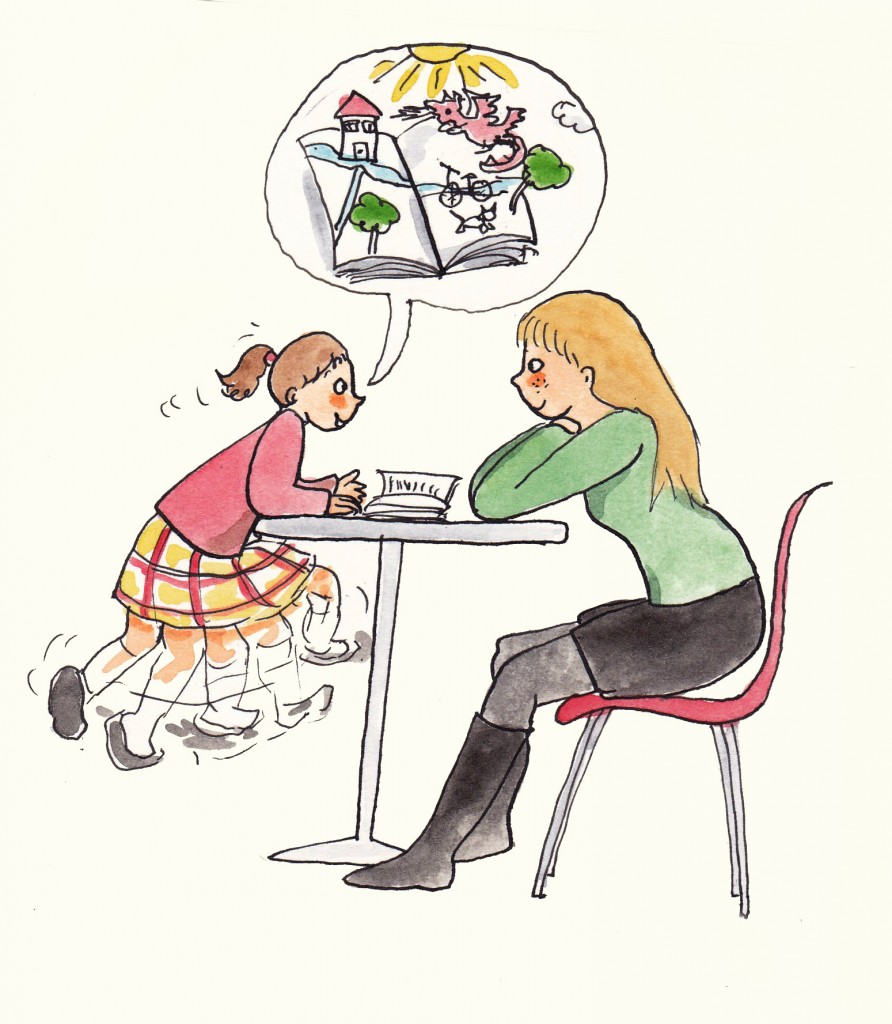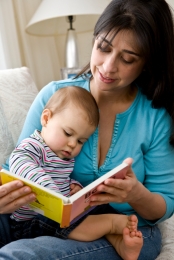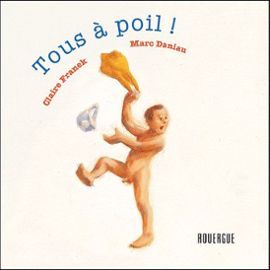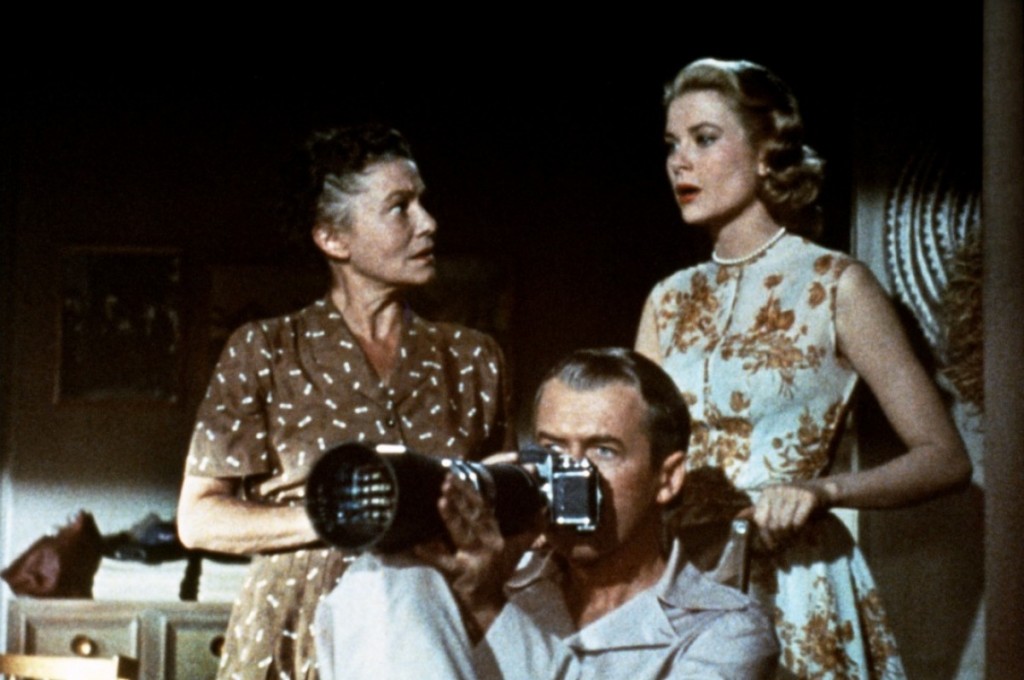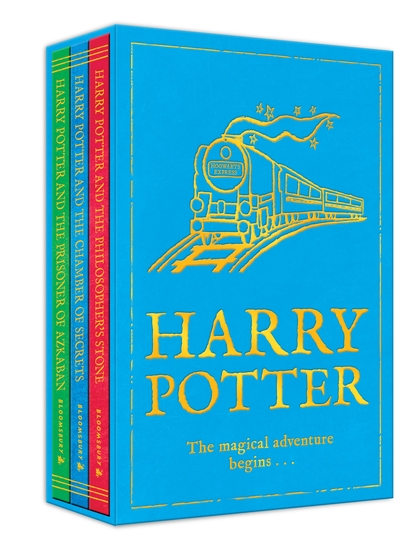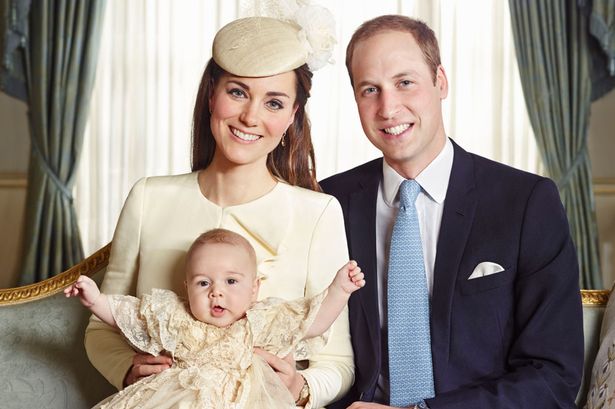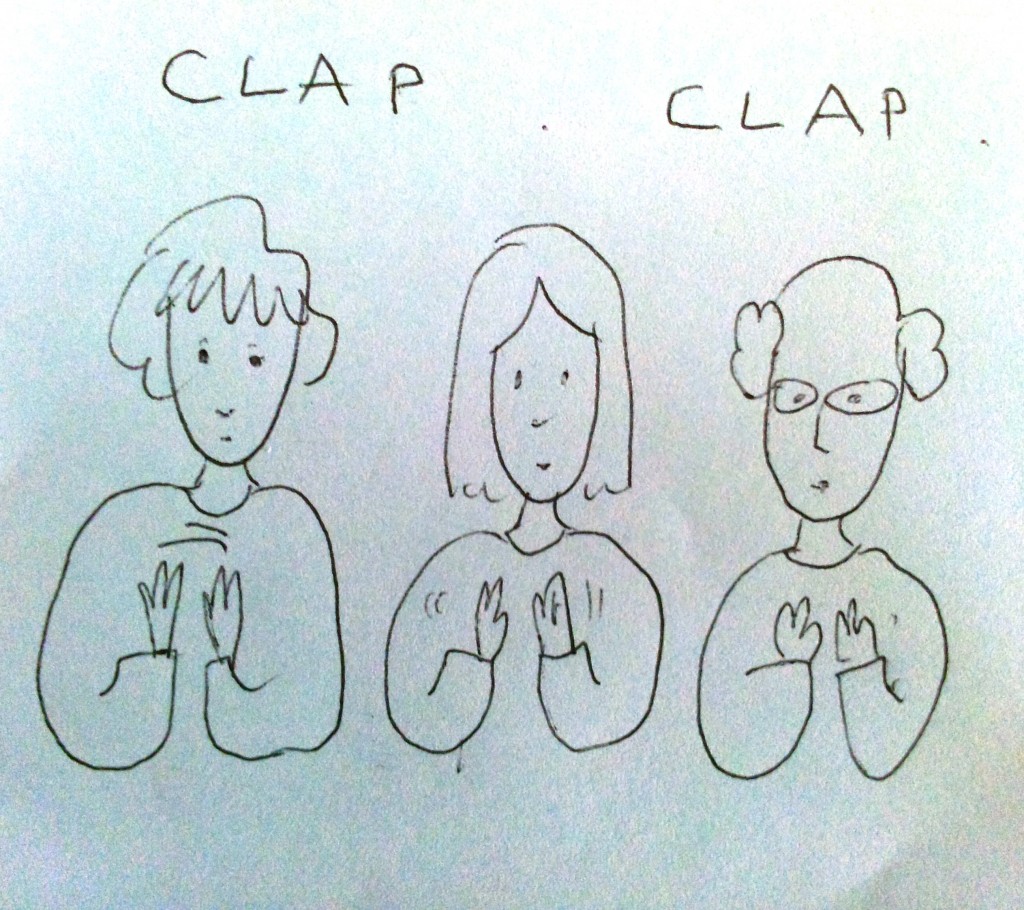The first part of this blog duology (right there) mostly revolved around the publishing and writing of politically committed children’s literature. But what I was most interested in in my thesis were theoretical conclusions to the analysis of such texts. Here are a few of them (necessarily abbreviated and simplified):
What is the implied child reader of committed children’s literature like?
The child reader addressed by politically committed children’s texts (the ‘implied reader’ in Wolfgang Iser’s vocabulary) is primordially someone who would be receptive to the text and its implications – and who would consequently be both willing and able to act to improve the world following his or her reading. This ideal reader would thus be so struck by his/her reading that s/he would attempt to convert these ‘intangible’ encounters with sociopolitical change into ‘real’ actions.
To put it in Sartrian jargon, such texts ‘call’ for a reader who, ideally, would take up the difficult task of accepting responsibility for the world, and contributing to change it. This task is shared between author and reader.
OK, so basically, it’s an implied child reader who would do exactly what the author asks?
Well, actually… no. At least, never straightforwardly, and especially not in the most complex examples of committed children’s literature, where extremely interesting things can happen.
Let’s take for instance the example of The Tooth, a seemingly simple, but actually beautifully profound picturebook by Avi Slodovnick and Manon Gauthier. This is the story of Marissa, a little girl who has to have a tooth extracted. Her mum tells her she can put the tooth under her pillow, and she will get a coin in exchange for it. Instead, though, the little girl decides to give her tooth to a homeless man – quite logically thinking that he needs a coin more than she does. The man smiles, but the narrator closes the story by saying: “Now all he needed was… a pillow.’
 The implied child reader in this picturebook is, as said previously, someone who would actualise the values in the text. But it doesn’t mean that the reader is invited to follow Marissa’s actions. In fact, the text is softly but seriously critical of Marissa’s behaviour. By giving her tooth to the homeless man, she didn’t change anything to his material situation. Of course, she’s not a bad person: symbolically, she did good, and the man thanks her with a smile. And she did notice that this man needed money.
The implied child reader in this picturebook is, as said previously, someone who would actualise the values in the text. But it doesn’t mean that the reader is invited to follow Marissa’s actions. In fact, the text is softly but seriously critical of Marissa’s behaviour. By giving her tooth to the homeless man, she didn’t change anything to his material situation. Of course, she’s not a bad person: symbolically, she did good, and the man thanks her with a smile. And she did notice that this man needed money.However, her action is hollow. Marissa is at the centre of a web of adult-woven fictions. She believes that the Tooth Fairy exists and gives money in exchange for teeth. She also tacitly believes that everyone, including homeless people, have pillows. She is wrong, and the picturebook is explicit as to the latter belief at the very least: the last page in the picturebook shows an empty bed – a bed in which the homeless man will not sleep tonight.
 The young reader is forced by the iconotext to detach him/herself from Marissa and is thereby confronted to a vertiginous wealth of new questions. If giving her tooth was ‘useless’, what should we do? If it’s not enough to notice that there is poverty in the world, how should we act? The picturebook remains silent as to those matters. The young reader is ‘dropped’ there, exactly at the moment when s/he would need an adult ‘guide’, some kind of prescription, some kind of answer… but there is no answer.
The young reader is forced by the iconotext to detach him/herself from Marissa and is thereby confronted to a vertiginous wealth of new questions. If giving her tooth was ‘useless’, what should we do? If it’s not enough to notice that there is poverty in the world, how should we act? The picturebook remains silent as to those matters. The young reader is ‘dropped’ there, exactly at the moment when s/he would need an adult ‘guide’, some kind of prescription, some kind of answer… but there is no answer.From those silences, the ideal young reader of politically committed children’s literature is asked to become, more fully, an actor of his or her nascent political commitment.
But does the adult know what to do?
In my view, no – the adult doesn’t know. The ‘hidden adult’ * of committed children’s literature is above all an anguished, unsure adult, dispossessed of any means to act. Those texts testify to the adult’s disempowerment.This disempowerment is such that it leads to a subservience to another authority, an authority-in-becoming, that of the child.
But of course, no one likes to feel that one’s authority is being threatened. The ‘hidden adult’ of committed children’s literature is no exception (I hope it’s clear that I’m personifying an entity that isn’t ‘really’ a person here). As a result, those texts are also in places extremely prescriptive and authoritarian.
So we end up with a double discourse of the adult in politically committed children’s literature: on the one hand, a discourse of hope and adult disempowerment, on the other hand, a discourse of authority and prescription. This double discourse, it seems to me, can never be simplified into one or the other, though some books tend towards one rather than the other.
*I don’t have the space here to explain Perry Nodelman’s complex concept of ‘the hidden adult’ in children’s literature. Very briefly: it is the adult authority ‘in’ the text, not necessarily coinciding with any adult character, narrator or author; it is the synthetic figure of adulthood extractible from teh text.
So is committed children’s literature by nature utopian and unrealistic?
Yes, but only more explicitly so than other types of children’s literature. Children’s literature addresses children, and children are, for adults, fundamentally beings-in-becoming and therefore future-bound and hopeful (this is, again, the perspective I adhere to, shared by some children’s literature scholars but not all).
They are therefore fundamentally unpredictable. Since they are unpredictable, they are beings who could still be anything. The adult authority therefore seeks to make them adhere to certain positions, and to let them create their own positions.
However, politically committed children’s literature exacerbates this utopianism which is present in all discourses addressed to children. This is, firstly, because of the themes it frequently tackles: it is a literature which talks a lot about the future, about the impact of human actions, about hope, and about children’s ability to do better than adults. Secondly, it is also due to the fact that such literature often focuses on adult imperfections: the shortcomings of the adult world, of adult sociopolitical systems. As a result, the motif of the child and its logical counterpart – the adult-in-becoming – are glorified.
Such a literature is utopian, unrealistic, or at least idealistic, because it explicly ‘counts on’ the child reader: it depends on the child reader. But, I think, in all discourses addressed to children there is a similar request from the adult – a similar desire, a similar anguish to be listened to.
Any discourse targeting children is always in part an acknowledgement of failure by the adult. This acknowledgement is accompanied by a demand, a prayer. Committed children’s literature is a corpus of texts which makes those acknowledgements, demandes, prayers more visible perhaps than other types of children’s literature.
I’ll stop here!
Clem

